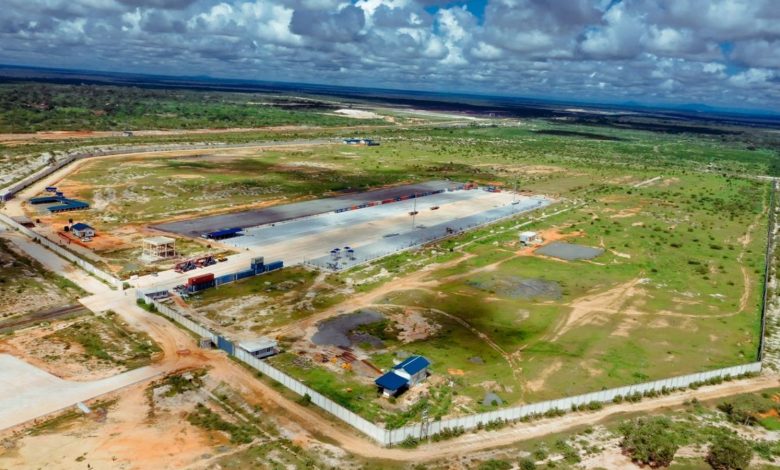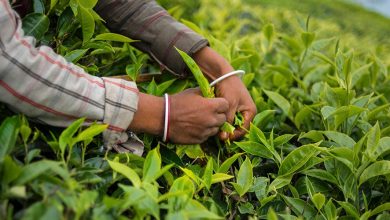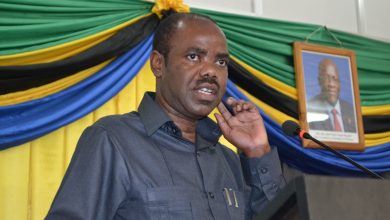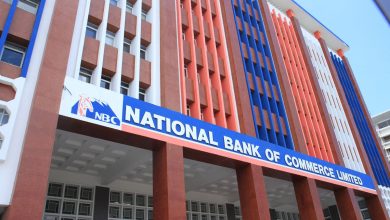Kwala park poised to become new industrial hub

COAST REGION: KWALA Ward in rural Kibaha, Coast Region, is rapidly emerging as a new industrial powerhouse, signalling a significant shift in Tanzania’s manufacturing and economic landscape.
The ward, home to Kwala Industrial Park (KIP), once just a blueprint for economic transformation, is now a thriving industrial hub, bringing factories, jobs and modern infrastructure to a previously underdeveloped area.
KIP, with nearly 60 per cent of its first-phase factories already operational, is setting the pace for what many see as the future of Tanzania’s manufacturing and logistics landscape.
Positioned on over 2,500 acres of land, the park is designed to host more than 500 industries, ranging from large-scale manufacturers to small and medium enterprises. The project has already attracted over 3.0 billion US dollars (8.0 tri/-) in investment, a clear signal of investor confidence in Tanzania’s industrial future.
“We are now beginning to see real progress,” said KIP Chairman Janson Huang.
The KIP initiative was launched in 2022. Currently, seven of the 12 planned factories in the first phase are operational, producing goods ranging from textiles to solar panels.
Mr Huang said these factories have created 311 direct jobs so far and projections indicate more than 2,000 direct jobs will be available once phase one is complete.
The seven factories currently operating have already employed 311 people and we expect over 2,000 direct jobs by the time phase one is fully complete.
Supported by strong government policy, modern infrastructure and strategic connectivity including full integration with access to the electric railway (SGR) and the Kwala Inland Container Depot (ICD) the park is positioning itself as a regional logistics hub.
ALSO READ: Kwala Port to boost trade in central corridor
This logistical synergy dramatically reduces congestion in Dar Port, cutting transit times and import/export delays. It also benefits Tanzania’s land-linked neighbours such as Uganda, Rwanda, the Democratic Republic of Congo, Zambia and Malawi by offering a streamlined cargo route to and from its main seaport. Six more investors have signed contracts, supported by the completion of critical infrastructure including roads, water, electricity and sewage systems.
“Tanzanians are now ready for an industrial revolution,” said Mr Huang.
He credited the government’s policy environment and infrastructure investments as crucial to the park’s progress.
“Kwala Industrial Park as a catalyst for Tanzania’s next chapter invites others to participate in this transformation,” he said. “What began in 2022 as a bold policy vision driven by reform, investor-friendly governance and global partnerships has now materialised into operational factories, real jobs and measurable productivity gains”. Minister for Industry and Trade, Dr Selemani Jafo, emphasised the economic scale of the park.
“This park will produce goods worth more than 6 billion US dollars annually, of which 2 billion US dollars are for export and 4 billion for the local market,” he said. Dr Jafo added that the park already represents 30 million US dollars in initial investment, with the long-term target of 3 billion US dollars. “This park will create 50,000 direct jobs,” he said.
The internal infrastructure includes a 1.8-kilometre access road, 16-metre four-lane roads and 32-metre two-lane roads, ensuring smooth movement of goods and people. Utilities such as electricity, water and sewage systems are in place. Local residents are already seeing benefits. Ms Hadija Suleiman, a Kwala resident working in cleaning and reception, said the park has improved her life.
“I was not doing anything before, but now I have secured a temporary job at the factory. Even though we are paid on a daily basis, I am glad that I am earning something,” she said.
For Ramadan Fikiri, a local carpenter based in Kibaha, said the recent opening of the KIP has already begun to change his business fortunes. Mr Fikiri, who has been running a small carpentry workshop for over three years says the launch of the industrial park is not just a national milestone but a personal success story.
“It has been almost two weeks since the park opened, I have received orders for furniture, especially beds, wardrobes and tables. This is the kind of opportunity I have been waiting for,” said Mr Fikiri. He recalled that before the park opened, he was just waiting for orders. “Sometimes, an entire month would pass and I had got only three or four orders for beds. It was hard to survive but now, thanks KIP.
According to him, several new companies and support facilities set up at KIP have turned to local service providers for their basic infrastructure and furnishings.
“I had to hire two extra hands this month alone just to keep up,” he noted, adding that this could be the beginning of long-term growth for my workshop. While much of the focus has been on large-scale manufacturing and international investment, Fikiri’s story is a clear example of how local entrepreneurs and tradespeople are already benefiting. Looking ahead, Fikiri is optimistic.
“If this continues, I will be able to invest in better machinery. I believe this park is not just for big investors, it is also for us small business people,” he said.
ALSO READ: Kwala Port hailed for reducing congestion at Dar port
With plans for a wide range of industries including pharmaceuticals, transport equipment, agricultural processing and apparel, KIP is set to become a cornerstone of Tanzania’s Vision 2025 and Development Vision 2050.






430905 736291Low-cost Gucci Handbags Is usually blogengine considerably far better than wp for reasons unknown? Ought to be which is turning out to be popluar today. 300392